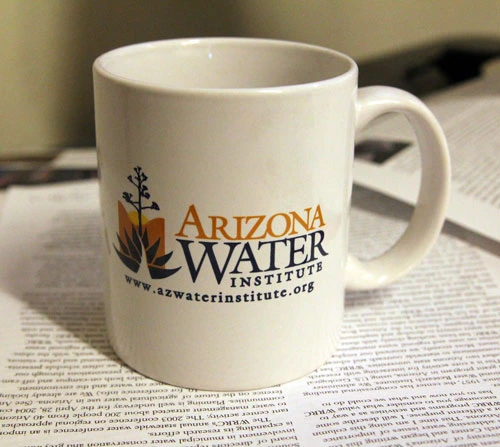
During last November’s 85th Arizona Town Hall at the Grand Canyon, Governor Janet Napolitano announced her proposal for an Arizona Virtual Water University. Her AVWU concept was to bring together the talents of the three universities — University of Arizona, Arizona State University and Northern Arizona University — to better focus their efforts on state water needs. AVWU would ensure that Arizona has the tools needed for sustainable water supplies, provide enhanced opportunities for water resources education, and expand the state’s water research and technology development.
Since the Grand Canyon meeting a lot of effort has gone into implementing this innovative concept. The Governor’s Chief of Staff Alan Stephens has hosted and facilitated the efforts of a working group involving representatives of the three state universities and three state agencies, as well as water stakeholders. I have been a participant in these sessions.
Collaboration among the three state universities is not uncommon. What is unusual, however, are the universities working with the state departments of Commerce, Environmental Quality and Water Resources to identify joint projects and develop a business plan. The idea is that this concerted effort will accomplish more for our state than the typical modus operandi. Information, databases and decision tools needed for Arizona communities will be developed to assist decision makers. Enhanced research and development will boost the economy by creating jobs and providing increased opportunities to export knowledge and information. Additional and improved water resources curricula and educational program offerings will be developed.
Efforts to date include the development of a concept paper for the AVWU, which includes a proposed organizational structure. A four-person Executive Committee, comprised of the universities’ three vice-presidents for research and the Chief of Staff for the Governor (or designees), will oversee the hiring and work of an executive director. Limited funds have been identified for this effort, although the Arizona Board of Regents recently awarded $150,000 to assist in hiring the AVWU executive director.
To facilitate on-campus coordination, each university has named a coordinator to work on identifying and implementing projects for both the immediate and near term. The executive director will eventually work with one or more associate directors; these are expected to be housed within one of the three state agencies, Commerce, Environmental Quality or Water Resources. The embedding of AVWU personnel in the agencies is a strategy to keep the work of the AVWU connected with the needs of the state.
Interaction with external stakeholders for input on project priorities and project formulation has occurred, and an External Advisory Committee will be formed. The chair of the External Advisory Committee is expected to serve as an ex officio non-voting member of the Executive Committee. The Arizona Department of Commerce and the Board of Regents have funded a contract with Battelle Memorial Institute for assistance in developing a business plan for the innovative water institute. A needs assessment for the AVWU is underway.
The AVWU working group has identified four projects for immediate work, with each project a collaborative effort expected to involve principal investigators from the three universities. Some limited funding has been identified to start these projects. Each has short-term and long-term objectives. Brief descriptions follow:
Arizona Hydrologic Information System The project goal is to develop AVWU’s information infrastructure and to provide access to data relevant to water-related research, technology, planning, education, and outreach from multiple Southwest sources. The project’s first phase is well underway. Developed at the UA, the arizonawater.org web site information tool was unveiled at the Arizona Water Summit at NAU. (See Publications, page 7, for a description of this site.) Readers are invited to visit the site which should be a very useful portal for information and interaction.
Water Quality Priority Projects Two water quality themes with long-term implications for water management have been prioritized: arsenic and other inorganic contaminants in drinking water and source waters, and emerging contaminants in wastewater. The specific projects are important for determining human health and ecosystem impacts along with the short-and long-term evaluation and remediation of Arizona water systems.
Water Conservation Technology Exchange This project will establish a forum to promote an exchange of water conservation technology among industrial water users, water providers, policy makers, research and educational institutions, and community groups.
Meeting the Water Management and Planning Needs of the Upper Verde Watershed This project, which is intended as a prototype, will focus technical expertise on the interdisciplinary objective of developing a future water supply and formulating drought management and planning scenarios for the Upper Verde Watershed. This area offers an exciting and timely location to focus the water talent of Arizona’s three universities; the tools and solutions worked out to address the local issues will be applicable to regional, national and international water concerns.
The AVWU is truly an innovative concept, one promising multiple benefits to the state. A challenge for all such efforts is obtaining needed resources; it is expected that this creative venture will attract the interest of funding agencies, private donors, and others willing to provide support. This truly is just the beginning.
NOTE: Anyone interested in applying for the AVWU Executive Director position should check the UA’s jobs web site, www.uacareertrack.com

